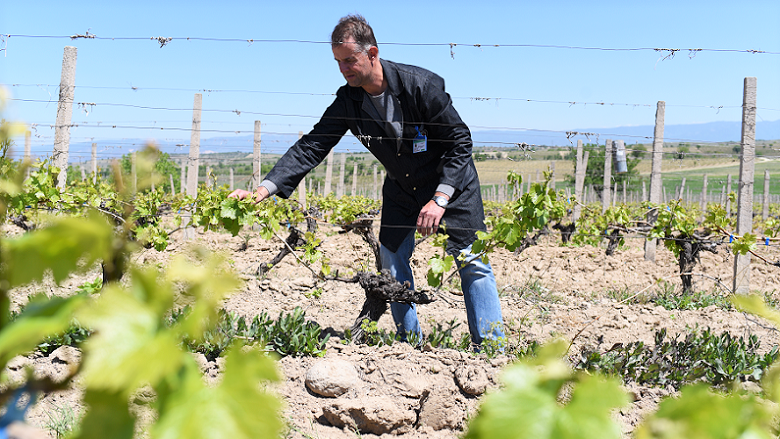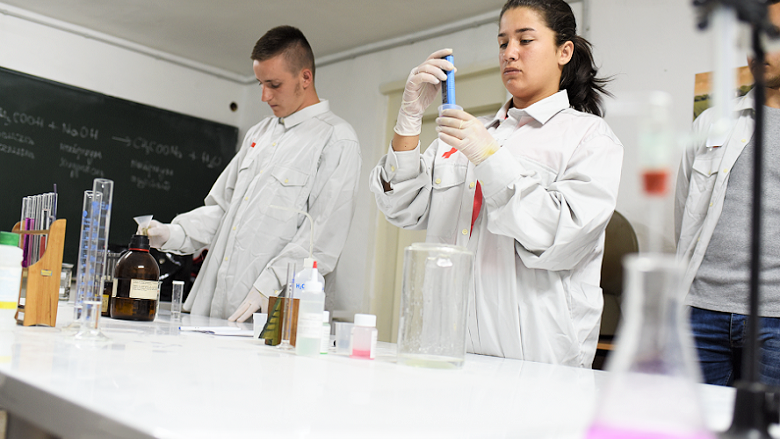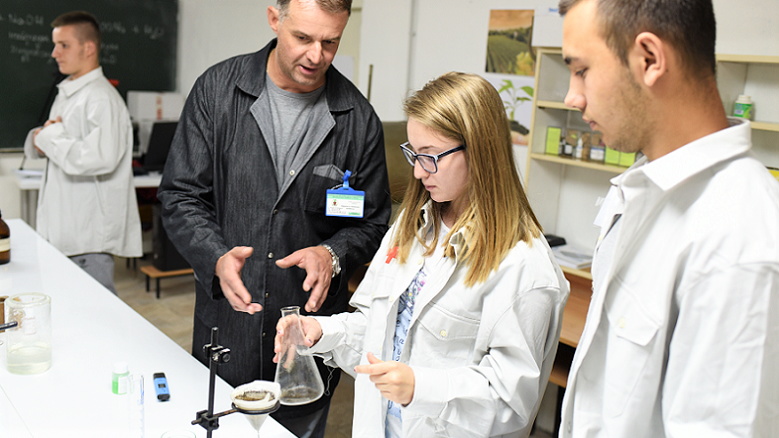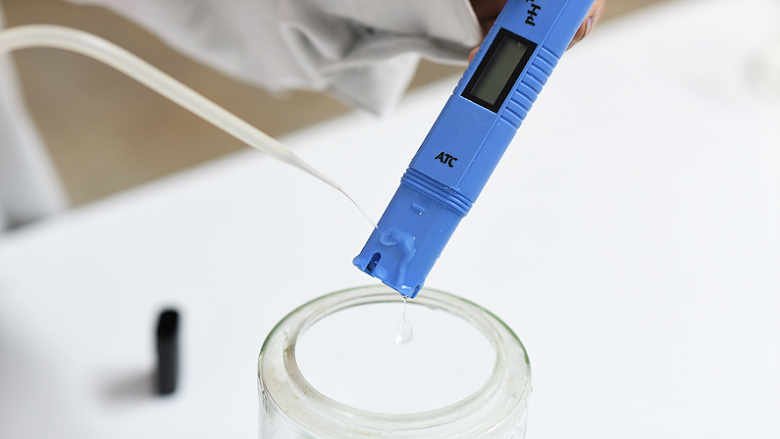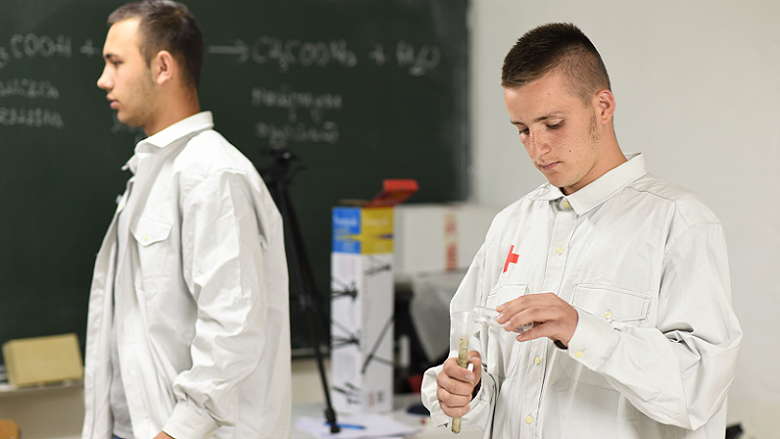As part of this effort, the TVET High School has a built a new laboratory for oenology and soil science, made possible by a grant from the World Bank-supported Skills Development and Innovations Support Project. The project provides financial incentives to encourage enterprises to work with TVET schools - providing on-the-job training for students.
“The laboratory helps the learning process in our classes and also helps us lean about improvements in science that happen on a daily basis. It is easier to see things in practice than to just have a lesson and write things down,” says Marija.
“This experience will benefit me in my life, as I can more easily find a job.”
As part of this project, the school is cooperating with Pro Grupa DOO Bitola, a private company, and has created a firm at the school called “Agrolab.” Through this company, students in Kavadarci now have access to quality vocational training that allows them to acquire practical knowledge about wine making – from the chemical composition of wine, to the biological processes that go into the practice of making wine.
Ten vocational education schools in the country have received grants for training and equipment under this project.
The lab is not only benefitting students in Kavdarci, but teachers as well, who are finally able to utilize new equipment for their research.
“Agrolab means a lot for our school,” says Natalija V’chkova, a Biology Professor at the Gjorce Petrov TVET. “It facilitates practical learning, allowing students to apply their theoretical knowledge in the real world.”
“And it also enables us to follow the latest trends and technologies in the wine industry and adapt practical skills - making the transition from school to work smoother.”
In addition to improving the skills and knowledge of students, small and medium wineries will also benefit from the laboratory. Instead of using the more expensive testing facilities in Skopje, Macedonia’s capital, they can now ask the school to do the testing.
“The laboratory is completely equipped for testing wine and soil, and is now a place where small and medium sized companies can go to for advice on how to improve and expand their production. Previously, these services were too expensive or simply not available,” says Ljupco Gruevski, Manager at Pro Grupa.
“The project also addresses ecological production, in terms of exporting to the European Union.”
Altogether, 10 TVET schools in the country have received grants for training and equipment.
At the school, students can apply their theoretical knowledge about wine making.
